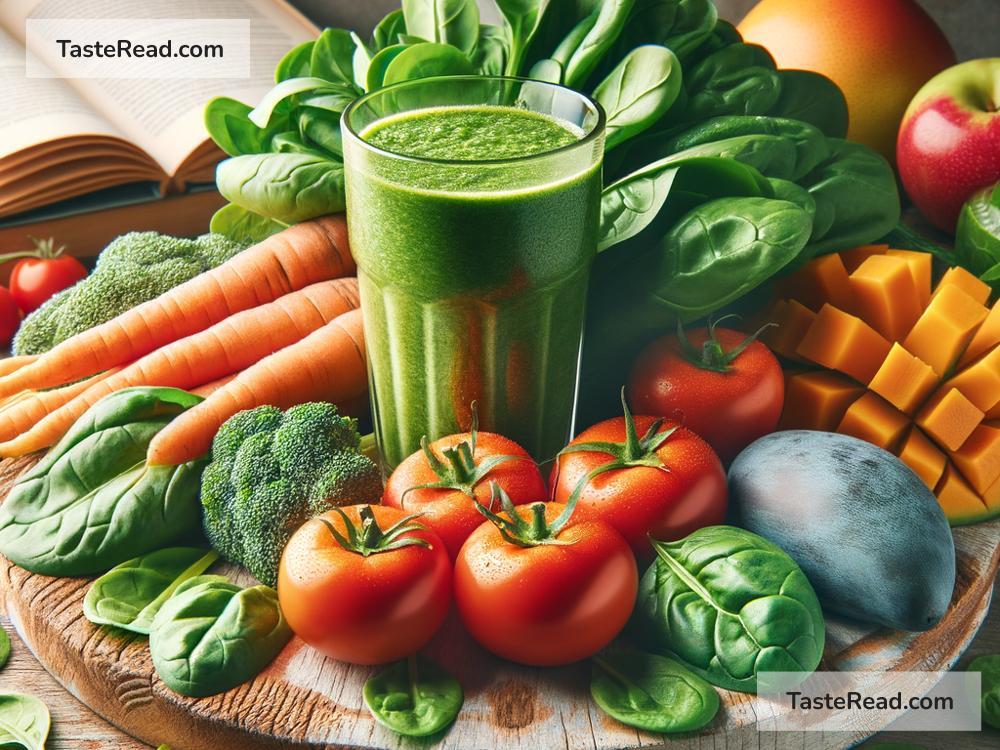Understanding the Role of Carotenoids in Health
Carotenoids are a group of natural pigments found in many colorful fruits and vegetables. They are what give carrots their bright orange color, spinach its deep green hue, and tomatoes their vibrant red tone. But carotenoids do more than simply make food look appealing — they play a significant role in keeping us healthy.
In this article, we’ll explore what carotenoids are, their benefits for health, and how you can include more of them in your diet. Let’s dive in!
What Are Carotenoids?
Carotenoids are plant-based compounds that act as pigments. In simpler terms, they are substances in plants that create colors like yellow, orange, or red. These pigments are essential for plants because they help absorb sunlight during photosynthesis — a process that allows plants to create energy and grow.
There are over 600 types of carotenoids, but only a few are commonly found in our diets. Some of the most recognized carotenoids include:
– Beta-carotene: Found in carrots and sweet potatoes, it’s a precursor to vitamin A, meaning your body can convert it into vitamin A when needed.
– Lutein and Zeaxanthin: Found in green leafy vegetables like spinach and kale, these are known for supporting eye health.
– Lycopene: Found in tomatoes and watermelon, this carotenoid gives these foods their red color.
Since our bodies cannot produce carotenoids, we need to get them from the foods we eat.
Why Are Carotenoids Important for Health?
Carotenoids are more than just pigments; they are powerful antioxidants. Antioxidants protect our cells from damage caused by free radicals — unstable molecules that can harm our body and contribute to aging and diseases like cancer. Let’s look at some of the specific benefits of carotenoids:
1. Supports Eye Health
Lutein and zeaxanthin are carotenoids that accumulate in the macula, a part of your eye that helps with central vision. These carotenoids filter harmful blue light from screens and sunlight, preventing damage to your eyes. They can also reduce the risk of conditions like age-related macular degeneration (AMD) and cataracts.
2. Promotes Healthy Skin
Beta-carotene helps your skin stay healthy. When it is converted into vitamin A, it supports cell growth and repair, keeping your skin strong and smooth. Eating carotenoid-rich foods can also improve your skin’s ability to protect itself from harmful UV rays from the sun.
3. Boosts Immunity
Vitamin A, which comes from beta-carotene, plays a major role in strengthening the immune system. It helps your body fight off infections and stay healthy.
4. Reduces Risk of Chronic Diseases
Carotenoids, as antioxidants, help to reduce inflammation in the body. Chronic inflammation is linked to several diseases, including heart disease, diabetes, and certain types of cancer. Lycopene, for example, is linked to a lower risk of prostate cancer and improved heart health.
5. Improves Brain Function
Studies have shown that carotenoids, especially lutein and zeaxanthin, may support brain health. They protect brain cells from damage and may reduce the risk of cognitive decline as we age.
How Can You Get More Carotenoids?
The best way to get carotenoids is by eating a variety of colorful fruits and vegetables. Here are some tips on how to include them in your diet:
1. Eat the Rainbow
Try to eat fruits and vegetables of different colors — orange, red, green, yellow. Every color represents a unique type of carotenoid. For example:
– Orange: Sweet potatoes, carrots, cantaloupe
– Red: Tomatoes, red peppers, watermelon
– Green: Spinach, kale, broccoli
2. Include Healthy Fats
Carotenoids dissolve in fat, which means your body absorbs them better when eaten with healthy fats. For instance, add a splash of olive oil to your salad or avocado to your plate of leafy greens.
3. Cook Some Foods Lightly
While eating raw fruits and veggies is great, cooking certain carotenoid-rich foods can make the nutrients easier to absorb. For example, cooking tomatoes enhances their lycopene content. But remember — don’t overcook, as this can destroy some nutrients.
4. Snack on Fruits
Fruits like oranges, mangoes, and papayas are natural sources of carotenoids. Enjoy them as snacks or blend them into smoothies for a colorful and nutritious drink.
Are There Risks?
Carotenoids are safe and healthy for most people when consumed through food. However, taking carotenoid supplements, especially in high doses, might not be ideal for everyone. For example, high doses of beta-carotene supplements have been linked to health risks in smokers. Always talk to your doctor before taking supplements.
Final Thoughts
Carotenoids are small but mighty compounds that offer enormous health benefits. From protecting your eyes to boosting your immune system and keeping your skin healthy, these colorful pigments are essential for overall wellness.
The good news is that incorporating carotenoids into your diet is simple. By enjoying a variety of colorful fruits and vegetables, you can naturally load up on these beneficial compounds. Remember — a plate packed with color is often a plate packed with health! So, the next time you’re grocery shopping, think about adding more bright and colorful options to your cart.
Your body (and taste buds) will thank you!


